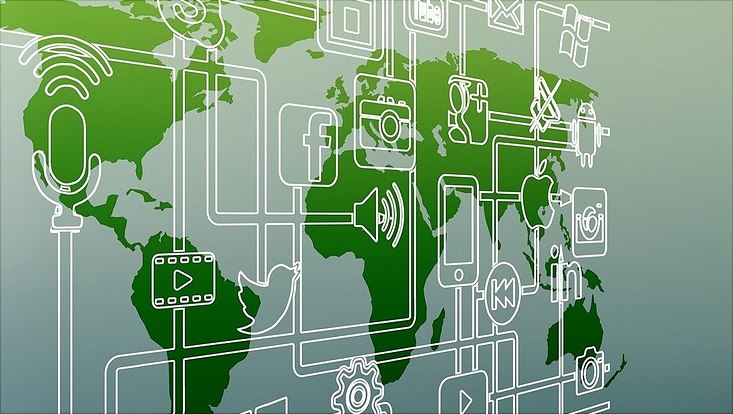Climate Change Exposure and Social Media – Public Opinion and Elite Communication

Photo: Pixabay
Background of the working group
Climate change and sustainability have become prominent in public discourse, media, and politics. A growing body of research in political science and psychology suggests that experiences with extreme and abnormal weather affect pro-environmental attitudes. However, evidence of its impact on actual political behavior remains limited. Notably, there is a gap in understanding how extreme and abnormal weather affects elite behavior and communication.
Recent research has begun to explore whether extreme weather events increase the share of press releases mentioning environmental issues. Still, little is known about how politicians strategically respond to climate change exposure. This question is crucial, given the contentious nature of climate issues. Extreme weather may increase support for climate protection, but it can also be used to advance anti-environmental agendas. For instance, in Germany, the Green Party is likely to emphasize climate issues after extreme weather to advocate for pro-environmental policies. In contrast, the far-right AfD may exploit such events to promote their anti-environmental stance, citing cold snaps as 'evidence' against human-induced global warming.
Thus, we argue that it is essential to explore how parties use their communication channels strategically to advance their policy agendas to support or hinder sustainable development in response to such events. Social media platforms are crucial in this context, serving as arenas where public discourse and competition between political parties takes place. In a 24-hour media environment, both politicians and the public constantly react to emerging events, making social media particularly important for reporting on or reacting to sudden weather phenomena by allowing political actors to respond instantly and bypass the delays of traditional press releases.
Objectives of the working group
Our working group seeks to explore questions surrounding the strategic use of communication by political parties in response to climate change and extreme weather events. Specifically, we aim to investigate:
- How do individual party politicians change their attention to environmental and climate change issues in their social media communication in response to extreme and abnormal weather?
- How are climate change exposure, elite social media communication, and public opinion interconnected?
To address these questions, we combine three different data sources in our analyses: original social media text data, that allows us to grasp the elite discourse of candidates and incumbents surrounding climate change, geo-referenced weather data on temperature anomalies and extreme events, and existing survey data measuring public opinion. First, we apply machine learning techniques to analyze large corpora of social media text, filtering and categorizing climate-related statements. We focus on candidates, since they operate within electoral districts, allowing us to match their social media communication with geo-referenced weather data in a second step. By linking social media and weather data, we are able to explore how extreme weather events and temperature anomalies influence elite/public discourses. Finally, we use survey-data to explore the interactions between weather, parties and the public. This strategy enables us to move beyond purely descriptive analysis often found in social science text-as-data approaches.
Our working group aims to contribute to the CSS key research subject “public spheres and communication” by uncovering patterns in elite discourse and public opinion in response to extreme and abnormal weather. To do so, we plan to organize a workshop bringing together leading scholars to discuss the intersection of climate change, political communication, and extreme weather, fostering collaboration and exchange of ideas. We will also focus on strengthening our methodological skills related to text as data analysis by participating in workshops on advanced text analysis techniques. Ultimately, our goal is to prepare and submit papers to peer-reviewed journals and present our empirical findings and theoretical contributions at conferences in the field of political science.
